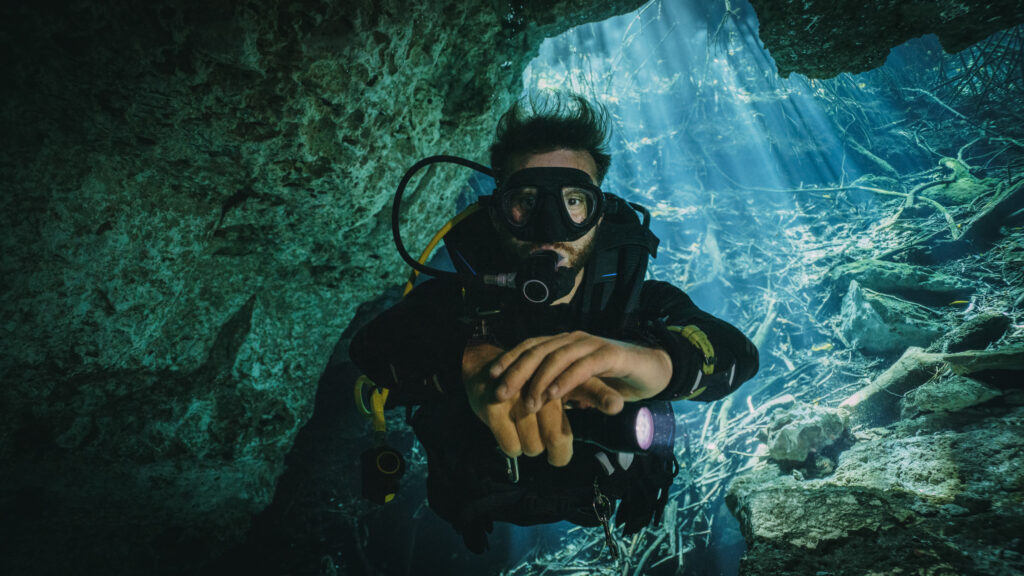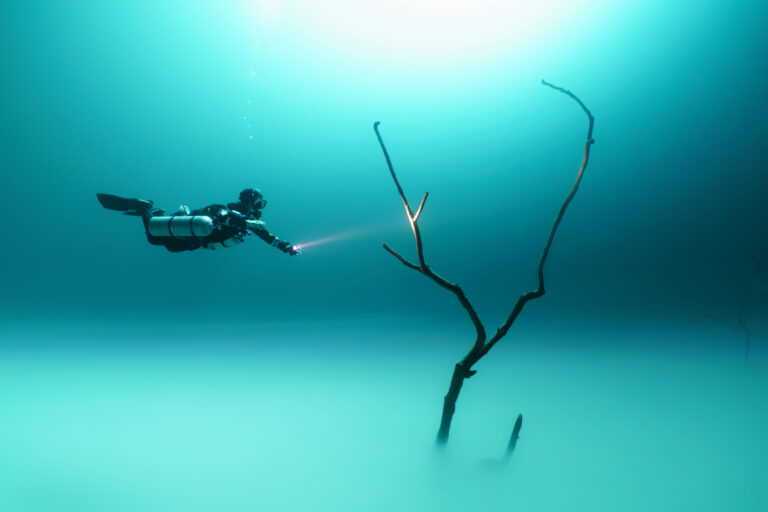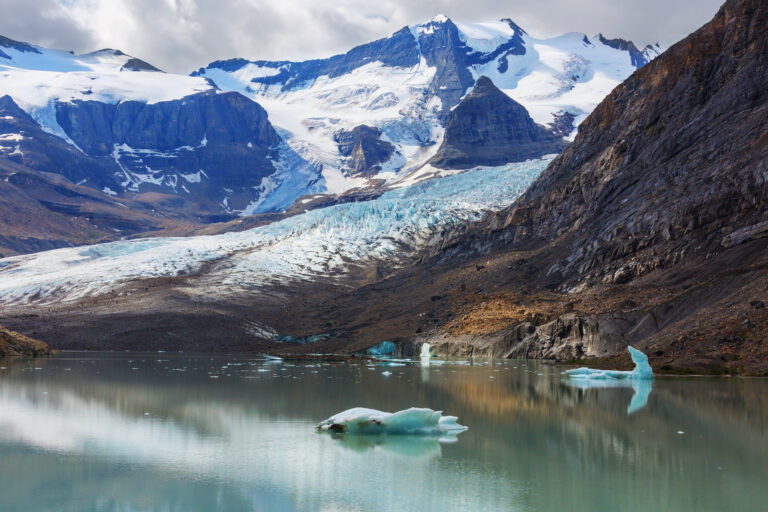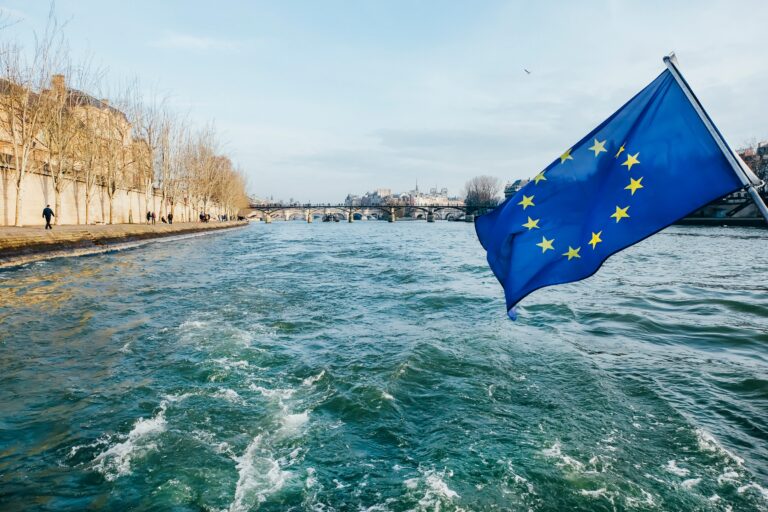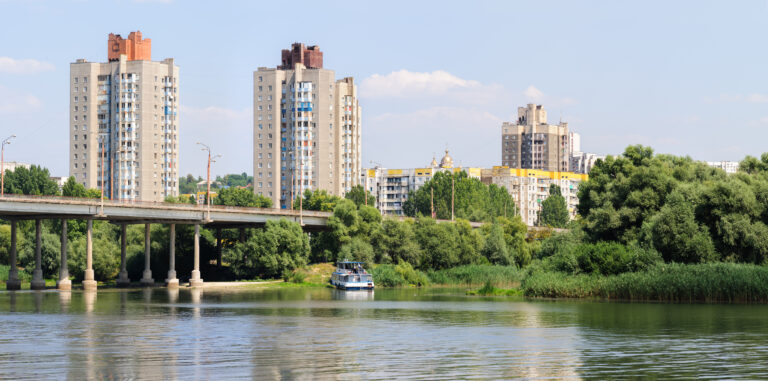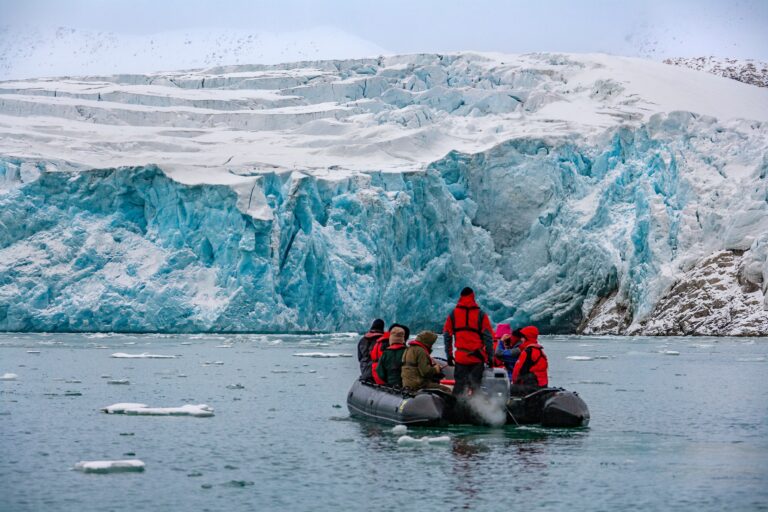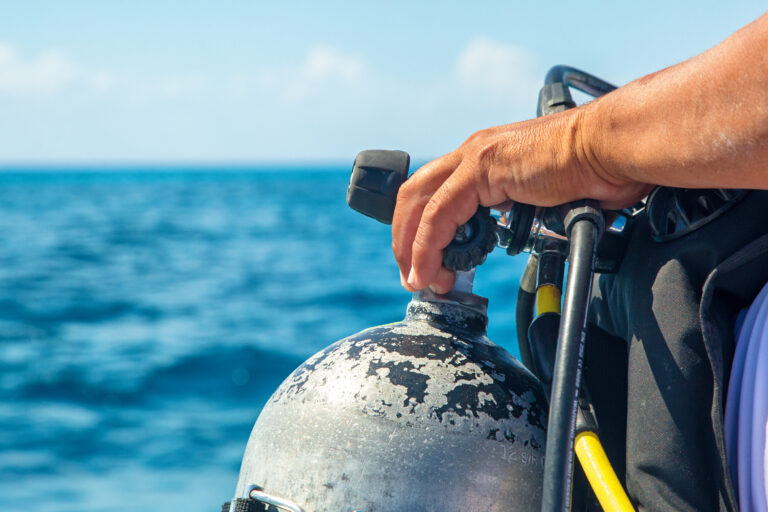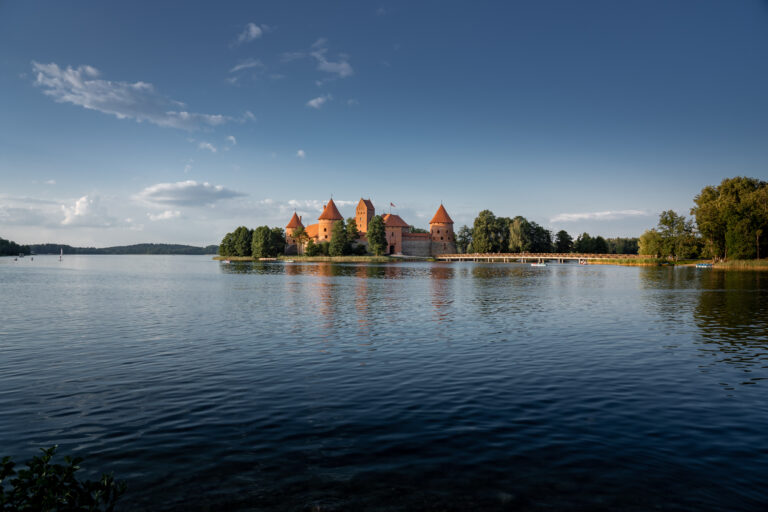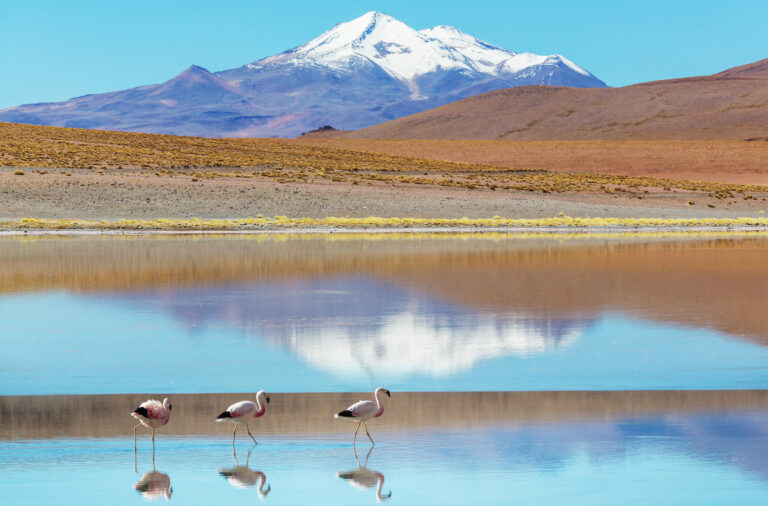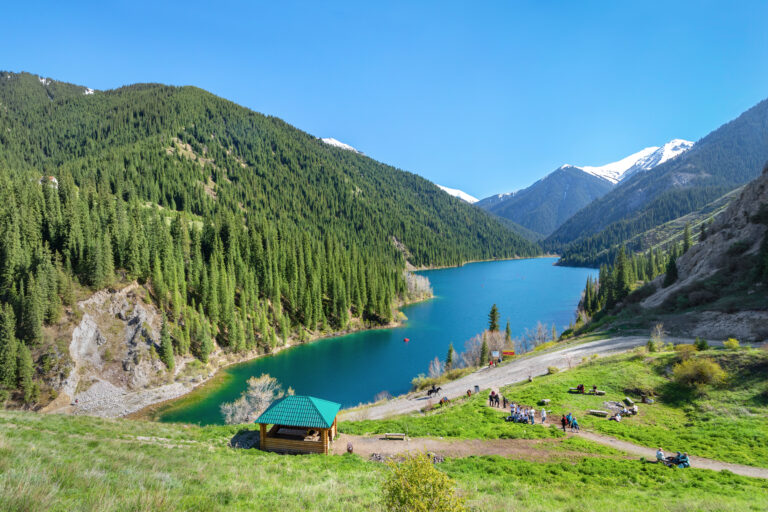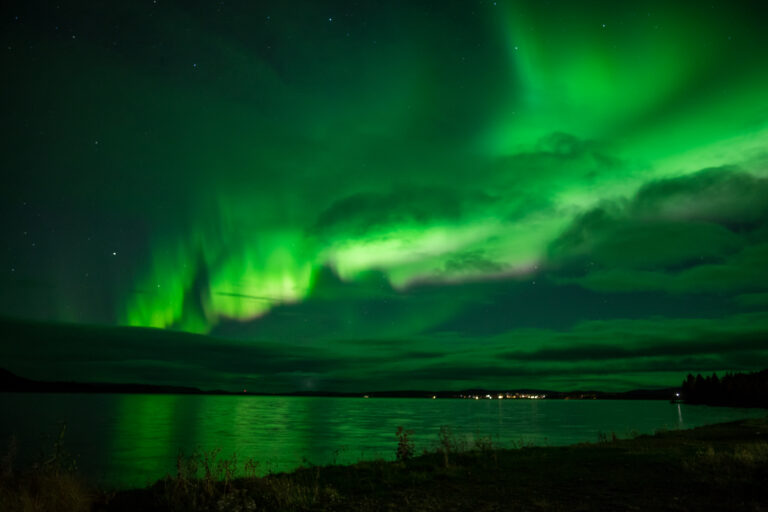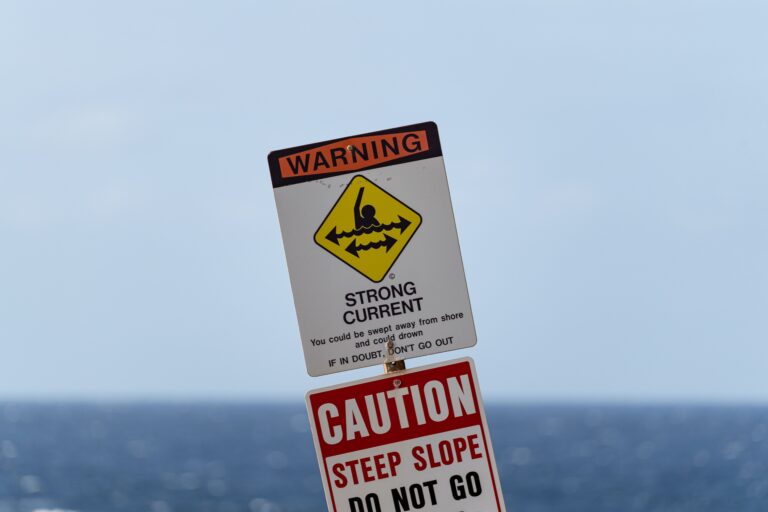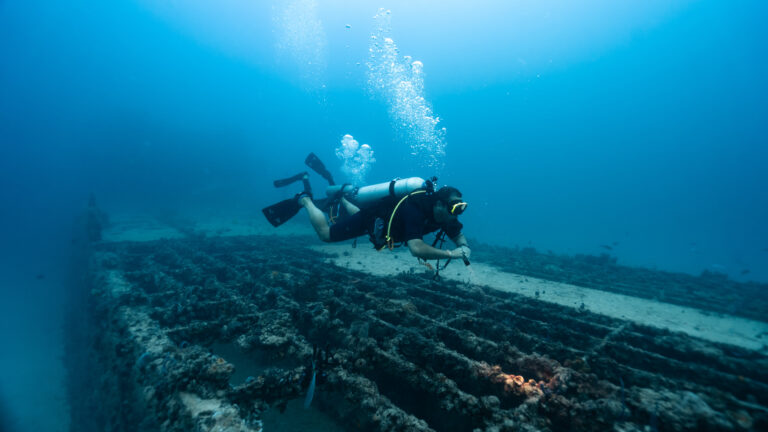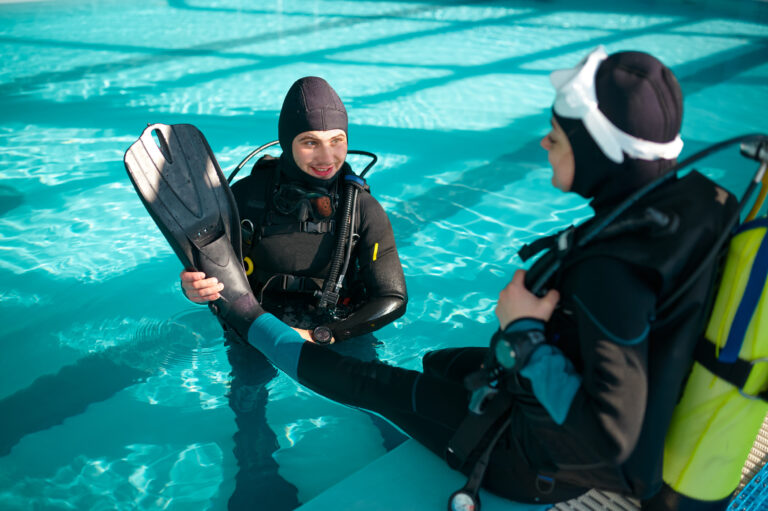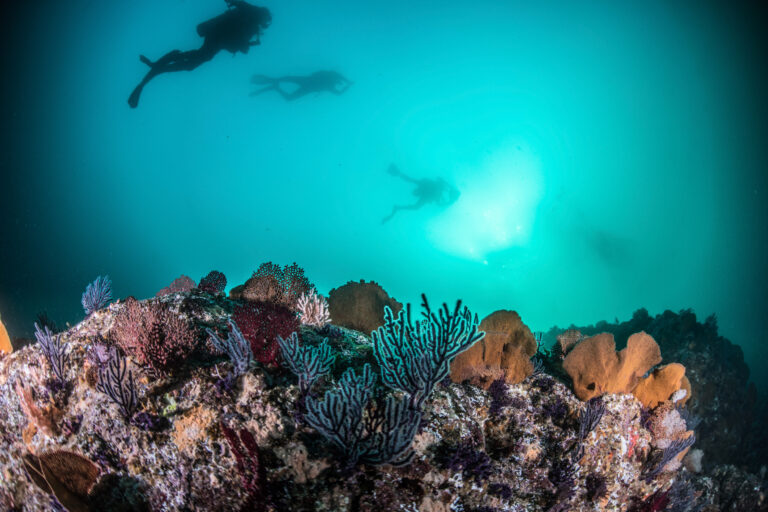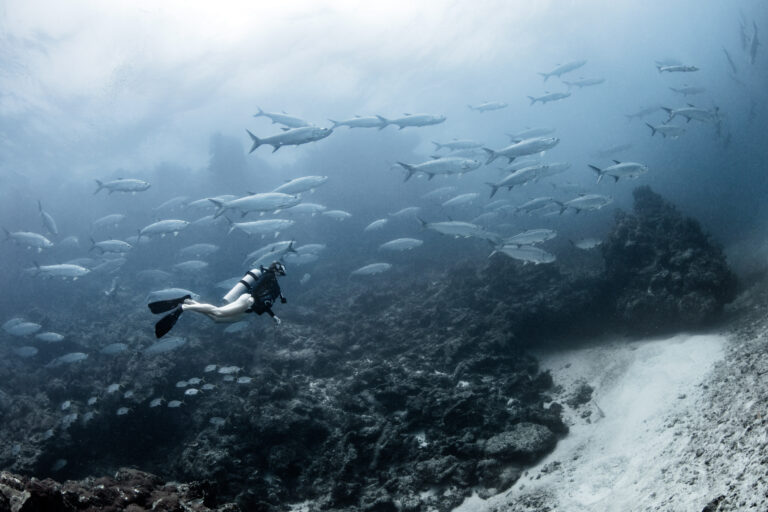Scuba Divers’ Travel Guide to Papua New Guinea
Papua New Guinea, located in the southwestern Pacific, is a top destination for scuba divers seeking rich marine biodiversity and unique underwater landscapes. The country’s clear, warm waters are home to vibrant coral reefs, abundant fish species, and larger marine animals such as sharks and manta rays. The diverse underwater environments, including coral gardens, drop-offs, and wrecks, provide a range of diving experiences. Papua New Guinea’s pristine marine environments and rich cultural heritage make it an ideal destination for scuba travelers. With its stunning natural beauty, Papua New Guinea offers a captivating and unforgettable diving adventure.
Location and Geography
Papua New Guinea (PNG), located in the southwestern Pacific Ocean, is a scuba diver’s paradise, offering an unparalleled mosaic of marine habitats. This country occupies the eastern half of the rugged and mountainous island of New Guinea, as well as numerous offshore islands, providing a vast array of underwater landscapes. The Bismarck Sea to the north and the Solomon Sea to the east are particularly renowned for their vibrant coral reefs and prolific marine life. Divers in PNG can explore the world-famous Coral Triangle, an area with the highest coral diversity on Earth. The intricate coastline, with its myriad of fjords, atolls, and lagoons, is bathed by nutrient-rich currents that attract a spectacular variety of sea creatures. From the volcanic islands of the Rabaul region to the deep drop-offs of Kimbe Bay and the unspoiled reefs of Milne Bay, Papua New Guinea’s underwater geography presents a dynamic and thrilling environment for divers of all levels.
Visa and Entry Requirements
Before embarking on your underwater adventure to Papua New Guinea (PNG), it’s essential to ensure that your travel documents are in order. Most travelers require a visa to enter PNG, which can be obtained upon arrival for tourists from many countries, including the United States, Canada, the European Union, and Australia, for stays of up to 60 days. However, it’s advisable to check the latest visa requirements with the nearest PNG embassy or consulate prior to your trip, as policies can change. Ensure your passport is valid for at least six months beyond your intended stay. Upon arrival, you may also need to provide evidence of return or onward travel, and proof of sufficient funds for your stay. Note that some remote diving locations may require additional permits or travel arrangements, so it’s wise to plan ahead and consult with your dive operator for specific regional entry requirements. Always respect local customs and regulations, as PNG is home to a rich tapestry of cultural traditions and natural wonders that deserve the utmost care from visiting divers.
Getting to Papua New Guinea
Getting to Papua New Guinea (PNG) for an unforgettable scuba diving adventure is an exciting journey that typically begins with a flight into Jacksons International Airport in Port Moresby, the nation’s capital. Major airlines such as Air Niugini, Qantas, Philippine Airlines, and others offer international service to PNG from various hubs across Australia, Southeast Asia, and the Pacific. Upon arrival, divers often take domestic flights to coastal destinations like Alotau, Tufi, or Walindi, where some of the world’s most pristine reefs and WWII wrecks await. For those looking to explore the remote and spectacular diving sites of the Bismarck Sea or the Coral Triangle, liveaboard boats can be boarded in locations such as Kavieng or Kimbe Bay. Travelers should ensure they have all necessary visas and vaccinations arranged well in advance, and be prepared for the possibility of limited internet connectivity and amenities as they venture into the rich and diverse underwater landscapes of Papua New Guinea.
Best Time to Dive
Getting to Papua New Guinea (PNG) for an unforgettable scuba diving adventure is an exciting journey that typically begins with a flight into Jacksons International Airport in Port Moresby, the nation’s capital. Major airlines such as Air Niugini, Qantas, Philippine Airlines, and others offer international service to PNG from various hubs across Australia, Southeast Asia, and the Pacific. Upon arrival, divers often take domestic flights to coastal destinations like Alotau, Tufi, or Walindi, where some of the world’s most pristine reefs and WWII wrecks await. For those looking to explore the remote and spectacular diving sites of the Bismarck Sea or the Coral Triangle, liveaboard boats can be boarded in locations such as Kavieng or Kimbe Bay. Travelers should ensure they have all necessary visas and vaccinations arranged well in advance, and be prepared for the possibility of limited internet connectivity and amenities as they venture into the rich and diverse underwater landscapes of Papua New Guinea.
Accommodation Options
Papua New Guinea offers a diverse range of accommodation options to suit the needs of scuba divers, from eco-friendly dive resorts nestled on remote islands to liveaboard boats that provide direct access to some of the world’s most pristine reefs. Dive enthusiasts can choose to stay in traditional-style bungalows that offer a unique cultural experience, with thatched roofs and woven bamboo walls, often situated just steps away from the beach. For those seeking luxury, there are upscale resorts with modern amenities, including infinity pools and spa services, which can serve as tranquil retreats after a day of underwater exploration. Budget-conscious travelers can find guesthouses and homestays in coastal villages, allowing for an immersive experience into the local way of life. Liveaboards are particularly popular among serious divers, as they offer the convenience of waking up each morning at a new dive site, far from the crowds. Regardless of the choice, the accommodations in Papua New Guinea are typically designed to blend with the natural environment, ensuring that your stay is as unforgettable as the marine adventures that await beneath the waves.
Dive Operators and Dive Shops
In the pristine waters of Papua New Guinea, a diverse array of dive operators and shops await to unlock the underwater treasures of this remote paradise. From the well-established dive resorts sprinkled along the coastline to the liveaboards that offer extended excursions into the Coral Triangle, divers are spoilt for choice. These operators not only provide access to some of the world’s most biodiverse reefs, but they also offer a range of services tailored to both novice and experienced divers, including PADI certification courses, gear rental, and guided dives. Many of these shops are staffed by locals with intimate knowledge of the reefs, ensuring that divers are guided to the most spectacular sites, from the WWII wrecks in Rabaul to the untouched coral gardens of Milne Bay. With a commitment to safety and a deep respect for the marine environment, Papua New Guinea’s dive operators are your gateway to an unparalleled underwater adventure.
Transportation within Papua New Guinea
Transportation within Papua New Guinea (PNG) offers a unique adventure for scuba divers seeking to explore its underwater treasures. Given the country’s rugged terrain and scattered islands, the most efficient way to travel between dive sites is often by small domestic flights operated by airlines such as Air Niugini and PNG Air, which provide access to coastal towns and islands. For a more scenic route, coastal boats and ferries connect various ports and can be a great way to experience local life, though services may be less frequent and require advance planning. On the mainland and larger islands like New Britain and New Ireland, road travel is possible, with local buses, known as PMVs (Public Motor Vehicles), and rental cars available, but be prepared for challenging road conditions in remote areas. For the ultimate convenience and a touch of luxury, some dive resorts offer their own charter services, including boat transfers directly to secluded dive spots, ensuring that divers can reach even the most hidden underwater paradises with ease. Always remember to arrange your transportation well in advance, especially during peak diving seasons, to ensure a seamless diving holiday in this spectacular corner of the Coral Triangle.
Currency and Payment Methods
In Papua New Guinea (PNG), the official currency is the Papua New Guinean kina (PGK). When planning your scuba diving adventure, it’s essential to note that while major hotels and dive resorts often accept credit cards, including Visa and MasterCard, many smaller operators and remote dive sites may only accept cash. ATMs are available in urban areas and larger towns, but they become scarce in more remote locations. Therefore, it’s advisable to withdraw sufficient cash before heading out to isolated dive spots. Currency exchange services are available at airports, banks, and some hotels, but exchanging money outside of these facilities is not recommended due to security concerns. Traveler’s checks are not widely accepted, so it’s best to rely on cash and cards. Always ensure you have a mix of payment methods and keep some small denominations of kina for incidental expenses, local markets, and tipping. Remember to inform your bank of your travel plans to avoid any issues with card transactions while enjoying the breathtaking underwater scenery of PNG.
Language and Communication
In the diverse and culturally rich waters of Papua New Guinea, language and communication play a pivotal role in ensuring a seamless scuba diving experience. With over 800 languages spoken across the country, Tok Pisin, Hiri Motu, and English are the official languages, with English widely used in the tourism sector. Divers should familiarize themselves with basic English diving terminology and consider learning a few phrases in Tok Pisin to show respect and enhance interactions with local dive operators and guides. Hand signals remain the universal mode of underwater communication, and it is crucial to review these with your dive team to avoid any misunderstandings during your underwater adventure. Additionally, dive briefings are typically conducted in English, and many dive professionals are multilingual, adept at bridging communication gaps. Embracing the local communication nuances of Papua New Guinea will enrich your diving journey, allowing for a deeper connection with both the marine environment and its warm, welcoming inhabitants.
Local Culture and Attractions
Papua New Guinea (PNG) offers a vibrant tapestry of cultural experiences, with over 800 languages spoken across its diverse communities. Visitors are welcomed with the warm hospitality of the Melanesian people, who share their rich traditions through colorful sing-sings (cultural dances), intricate carvings, and potent storytelling. The annual Kenu and Kundu Festival in Alotau showcases the magnificent war canoes and the rhythmic beats of kundu drums, providing a glimpse into the maritime heritage that complements the underwater wonders. In addition to the cultural immersion, PNG’s attractions include the Kokoda Track, a challenging historical trail offering insights into WWII history, and the lush highlands of Goroka, famous for its coffee plantations and the Goroka Show, an event that unites tribes in a spectacular display of cultural pride. Whether wandering the bustling markets of Port Moresby or exploring the sepik river villages, where stilt houses perch above the water, visitors can expect a feast for the senses that rivals the country’s underwater majesty.
Cultural Etiquette and Tips
When diving in the culturally rich waters of Papua New Guinea, it is essential to approach the experience with respect and sensitivity towards local customs and traditions. The Melanesian people of Papua New Guinea are known for their intricate tribal cultures and deep connection to the sea, which is often considered sacred. Before diving, take the time to engage with local communities and understand their relationship with the marine environment. It is customary to ask for permission from the local village elders or chiefs, especially when diving near remote islands or areas of spiritual significance. Show appreciation for their hospitality and guidance, and consider offering a small gift or contribution to the community as a token of gratitude. Be mindful of local taboos, such as taking artifacts or touching certain marine life that may hold a totemic value. Additionally, ensure that your diving activities do not disrupt or damage coral reefs and marine habitats, as these are vital to the livelihood and culture of the people. By demonstrating respect and adhering to local etiquette, you will not only enrich your diving experience but also foster positive relationships and sustainable tourism practices in Papua New Guinea.
Local Laws and Regulations Relevant to Tourists
When planning a scuba diving trip to Papua New Guinea, it is crucial for tourists to familiarize themselves with local laws and regulations to ensure a safe and lawful experience. The country requires all divers to be certified by a recognized agency and to carry proof of certification. Diving within the boundaries of marine protected areas (MPAs) is strictly regulated, and in some cases, permits may be required; these can be obtained from local conservation offices or dive operators. It is illegal to collect any marine life, including corals, shells, and fish, without a proper permit. Additionally, divers should be aware of the customary rights of local communities, which may include traditional ownership of reefs and coastal waters. Respecting these rights and seeking permission before diving in such areas is not only a legal obligation but also a gesture of cultural sensitivity. Tourists should also adhere to safety regulations, such as dive flag usage and adherence to safe diving practices. It is advisable to check with local dive shops for the most current information on regulations, as they can vary by region and may change over time.
Safety Tips and Emergency Contacts
When diving in the diverse and enchanting waters of Papua New Guinea, safety should be your paramount concern. Always dive within your certification limits and ensure that your equipment is well-maintained and appropriate for the conditions. Due to the remote nature of many dive sites, it’s crucial to dive with a reputable operator who knows the local environment and currents. Be mindful of the risks posed by the region’s marine life, such as jellyfish and sharks, and maintain a respectful distance. It’s essential to have a dive plan, including surface intervals and emergency procedures. Make sure you’re familiar with the signs and symptoms of decompression sickness and other dive-related injuries. Carry a surface marker buoy (SMB) and a whistle for visibility and signaling in case of separation from your group. In emergencies, contact the local DAN (Divers Alert Network) affiliate or the nearest hyperbaric chamber, which in Papua New Guinea is typically located in Port Moresby. Keep emergency contact numbers, including those of local coastguard and medical facilities, readily accessible. Remember, the nearest recompression chamber may be hours away, so consider investing in dive insurance that covers medical evacuation. Lastly, always dive with a buddy and keep an eye on each other throughout your underwater adventure.
Health and Travel Insurance
When planning a scuba diving trip to the enchanting waters of Papua New Guinea, it is crucial to consider health and travel insurance that covers diving-specific incidents. Given the remote nature of many dive sites in this biodiverse paradise, access to hyperbaric chambers and advanced medical facilities may be limited or require expensive transportation. Ensure your policy includes coverage for potential dive-related injuries, such as decompression sickness, and provides for medical evacuation, which can be a costly affair in this region. Additionally, be aware of the risks of tropical diseases, such as malaria, and verify that your insurance offers comprehensive health coverage, including treatment and repatriation if necessary. It’s advisable to choose a reputable insurer with experience in dive travel to ensure peace of mind as you explore the underwater marvels of Papua New Guinea.

